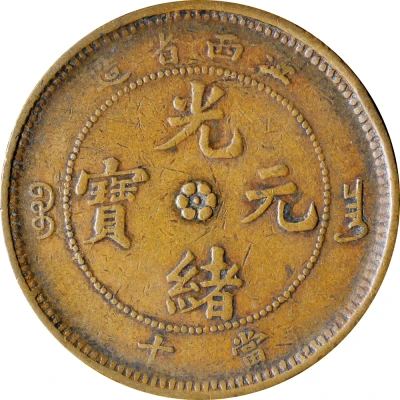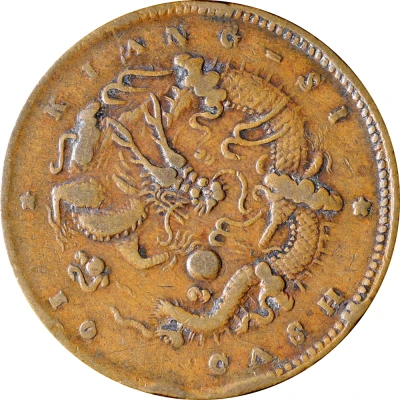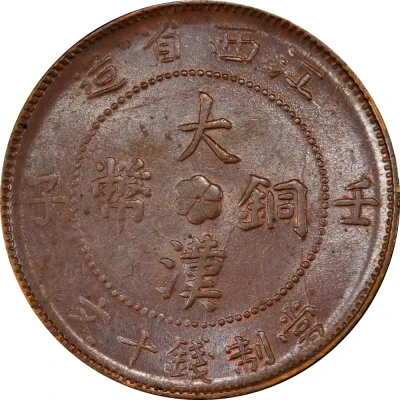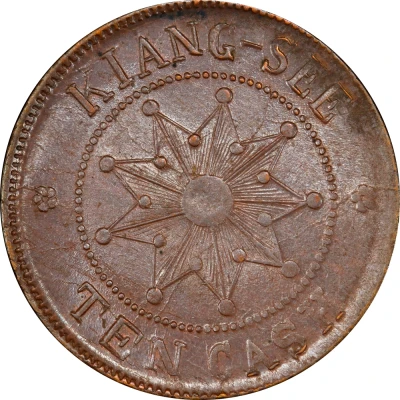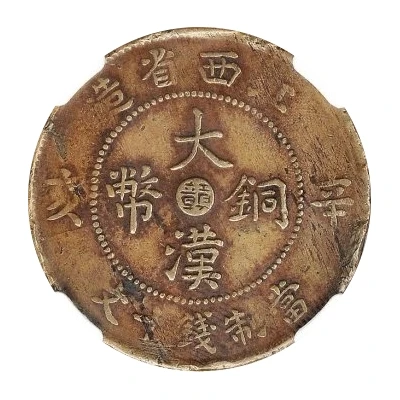
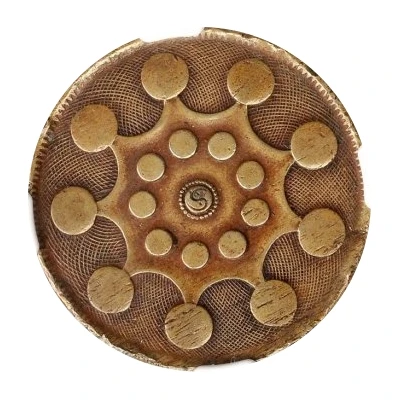

© Stacks Bowers
10 Cash Da Han coinage
48 (1911) year| Copper | - | - |
| Issuer | Kiangsi Province (Chinese provinces) |
|---|---|
| Period | Chinese Revolution (1911-1912) |
| Type | Standard circulation coin |
| Year | 48 (1911) |
| Calendar | Chinese cyclical (cycle starting in 1864) |
| Value | 10 Cash (0.01) |
| Currency | Yuan (1902-1949) |
| Composition | Copper |
| Shape | Round |
| Technique | Milled |
| Demonetized | Yes |
| Updated | 2024-10-04 |
| Numista | N#287783 |
|---|---|
| Rarity index | 95% |
Reverse
Yin-yang surrounded by eight dots within a star with eight more dots, all over a wave-like background.
Comment
The reverse design depicts "The Flag of Iron Blood and Eighteen Stars", better known as the "Wuhan Flag", with the eighteen dots representing the eighteen provinces involved in the uprising. This revolution was the one that lead to the overthrow of the Qing dynasty and the founding of the Republic of China.Qing authorities considered these coins to be an unauthorized illegal issues, and by law, anyone found carrying such pieces were subject to execution, and any examples falling into the Qing authorities' pocessions were to be destroyed. Very few examples are known to have survived, with most references suggesting only five are known (with two being in museums).
Interesting fact
The 10 Cash coin from Kiangsi Province (Chinese provinces) made of Copper is interesting because it was produced during a time of great change in China, as the country was transitioning from a traditional imperial dynasty to a modern republic. The coin's design reflects this shift, as it features a blend of traditional Chinese imagery, such as the dragon, and modern elements, such as the republican flag. This coin is a unique representation of China's history and a valuable collector's item for numismatists.
